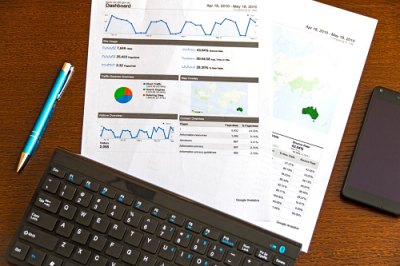Every minute, on average, people send over 185 million emails, stream 4.5 million Youtube Videos, and send 18.1 million text messages to each other. All these trends end up generating 2.5 quintillion bytes of data each day.- Source
The above statement might seem baseless to you, but for a Data analyst, this 2.5 quintillion byte data is as essential as an “input value” to a programmer.
You know Why?
That’s What Data Analysts do. They extract valuable information from millions of bytes of data to help their industry grow to new heights.
Can you be a Data Analyst without Coding Skills?
Yes, it is possible to become a Data Analyst without having any coding skills. All that is required is good statistical knowledge, a firm grip on Mathematical formulae, and impressive communication skills.
In this context, we will discuss How you can be a data analyst without coding skills.
Interesting Topics to read next:
Is Coding Required for Machine Learning?
Skills Required for Data Analyst Job
At the very, it was clear that Coding is not an essential skill for a Data Analyst. In this section, we will look over the skills necessary for an individual to make a bright career as Data Analyst in the 2020s.
Good Statistical Skills
The very first thing that you need to be a successful data analyst is good statistical knowledge. To filter a handful of important information from quintillion bytes of data, you need to have a firm grip on different statistics and mathematics formulae.
I’m not saying that you need to be a master of every statistics formulae and should be familiar with all concepts of mathematics, but there are some that you can’t miss out on:
- College-level Algebra
- Mean
- Mode
- Median
- Compound Interest
- Depreciation
Apart from this, you must have good visualizing skills, because a graph is far better than a Table while demonstrating a particular trend. From Bar graphs to different charts, you must have a stronghold on them.
HIGHLY Recommended Next Topic: How to Become a Data Analyst without Crazy Math Skills?
Excellent Communication Skills
As a Data Analyst, your job will be to extract meaningful information from trillions of bytes of data and share it with your company.
In some cases, you might have to develop strategies based on your understanding of the information. To justify your work, you have to attend meetings with your company’s management, and most management guys belong to the Non-Tech field.
In these meetings, you have to make statements that are crystal clear and indicate your motive directly. To do so, you need to have excellent communication skills.
You also have to ensure that your or the company’s strategies are perfectly aligned with the extracted information to get the maximum benefit from them. Therefore you can’t confuse the management with puzzling words.
Good Communication Skills = Excellent Data Analyst
Data Manipulation Skills
Applying appropriate filters on the data to extract the necessary information is termed Data manipulation. Having good statistical knowledge won’t be enough in data analysis because you can’t work with data without tools and software.
You have to create queries in those software and tools to extract the juicy(essential) data while ignoring the wanted data. All these fall under data manipulation. Having excellent data manipulation skills over different tools like Microsoft Power BI, Oracle Visual Analyzer, IBM Cognos, etc., will make you an efficient data analyst.
Data Management Skills
Arranging the information under a single hood could be challenging, and you can’t achieve neatness if you don’t have good management skills. Remember, just a few moments ago, I mentioned that you have to sit with Non-Tech guys and explain everything you have done. If your data isn’t managed correctly, you will find it difficult to explain your outcome.
Thus, having data management skills are as crucial as having statistical skills.
Data Analyst Tools
So, far you have learned about the skills required to start a career as a data analyst, but before stepping into this profession, you must know about different tools that you will be working on all the time.
Excel
Excel is a spreadsheet that belongs to the Microsoft Office program. Though Excel is not free, however, if your organization has collaborated with Microsoft, the chances are that Excel will be free for you.
Excel is one of the most straightforward tools to manage data. It doesn’t have any high-end UI because you can directly input data in the fields.
In Excel, you have dozens of Add-on features like Analysis Toolpak. Analysis Toolpak is a package that offers you a wide range of elements to perform statistical analysis of your data. Currently, Excel has more than 750 million active users all over the world.
Power BI
Power BI is another very compelling software created by Microsoft for data analysts. This time, Microsoft has included a free version, i.e., the Desktop version. Besides this, there are two more variants available, i.e., Pro and Premium.
Power BI tool allows you to generate live reports and dashboards from data. Through Power BI, you can work on a single project in collaboration with your teammates and colleagues.
Companies like Ecolab, Nestle, Tenneco, etc., are currently using Power BI to lead the market. While working with Power BI, you can also integrate Microsoft Excel and use your existing Excel implementations.
SAS
When it comes to data management, Business Intelligence, and Predictive analysis, SAS is the most trusted tool that data analysts rely upon. The simple user interface makes SAS a simple yet immensely powerful statistical software.
From Reports, Text analytics, and Smart Visualization, SAS offers you everything with a super easy interface. Companies like Netflix, Twitter, Google, Citibank, Apple, and several other market leaders are using SAS as their analysis software.
The next point of discussion is what is the best course you can take to become a data analyst, considering different levels of proficiency? Before digging into that, let me add below some of the top related and interesting articles that can add to what you’re learning from this one. If any of the titles picks your interest, please click and open in a new tab, so you can check them out later. Enjoy!
-
The Best Way a Beginner Can Learn Data Analysis

Every day businesses produce and store tons of data, but what happens with that? Today, this pool of information requires the ability to understand and refine data with efficiency, which
-
This is How much Data Analysts make (By Industry & By Country)

Are you considering a data analyst career? Take a look at their pay in each industry before you decide. Data analysts can have an excellent career path, and there are
-
Data Analytics Vs. Business Analytics – Top 5 Differences

Big data is the talk of the town nowadays. Whether it’s a huge organization or a mere primary school, it’s hard to find a field where it doesn’t have an
Data Analyst Courses
What else can be better than studying data analysis from industry experts? That too for free. Before you proceed, I must tell you that all the below-listed courses are free or cost and trusted by thousands of students worldwide.
Note: If you want to quickly grab all the information about the courses, refer to the table attached below.
Also check out: This is How much Data Analysts Make (By Industry and by Country)
IBM Data Analyst Professional Certificate
As the name suggests, This is a Data Analyst Professional Certification course created by IBM around IBM Cognos Tool. This professional course is available on Coursera, and over 7,507 students have enrolled in it so far.
In this Course, IBM professionals will teach you to create charts, plots from your Excel sheet. Throughout the course, you will be working in IBM Cognos Software, and by the end of it, you will be familiar with every minute element of Cognos. If you are looking for a course that can teach you about data analysis and tool both, then IBM Data Analyst Professional Certificate course is the best option for you.
Skills you’ll learn in the course:
- Excel
- SQL
- Cognos Analytics
- Pandas
- Numpy
This IBM course is quite lengthy, it might need a few months to complete, but IBM professionals will take you through every required information for being a professional Data Analyst.
Data Analysis Essentials
If you are looking for a course that strictly concentrates on developing a data analyst enthusiast’s skills, this course is perfect for you.
In this Edx Course, you will learn about the following:
- Decision Making
- Modeling of Data for Better Decision Making
- Visualization of Data
- Data-driven strategy making
Imperial College London created this course, you’ll need six weeks to complete this course, but you might complete it within 3-4 weeks if you are a quick learner. So far, over 47,349 students have enrolled in this course from all over the world.
Summary Table
| Course Number | 1 | 2 |
| Name: | IBM Data Analyst Professional Certificate | Data Analysis Essentials |
| Platform: | Coursera | Edx |
| Duration: | 2-3 Months | 2-3 Weeks |
| Expertise Level: | Beginner | Beginner |
Queries related to Data Analysts
#1. Is a Data Analyst a programmer?
No, a Data Analyst is a performer who performs different operations on data to extract information, whereas a programmer is someone who develops various projects and applications.
#2. Do Data Analysts use Python?
Yes, In some cases, where the data analyst isn’t using a powerful tool. They might have to write python statements on their own to filter out the data.
#3. What are the top 3 skills for Data Analyst?
The following are the three most essential skills for Data Analyst:
- Advanced Communication Skills
- Brilliant Statistical Skills
- Data Management Skills
Conclusion
Now you are clear enough to decide which skills you must acquire in the first place to be a successful data analyst. Coding is not a skill that is a must-have in the profession of Data Analyst, but if you know to write programs, it would be easier for you to use different Analysis Tools. You might not need one because, through programming, you can manually create filters for your data.
If programming is the only thing stopping you from being a data analyst, I would say ignore it and proceed confidently. You will be an excellent data analyst.
References:
Data Analyst vs. Data Scientist: What’s the Difference?
Can you be a Data Scientist without coding?
Do you need to know coding to be a Data Scientist?

